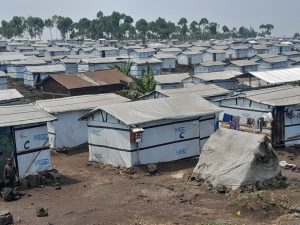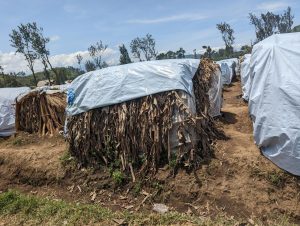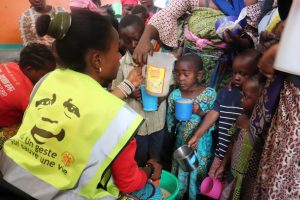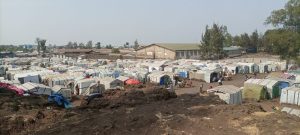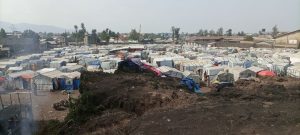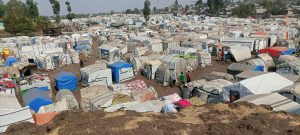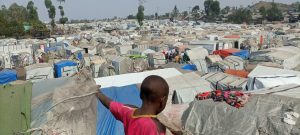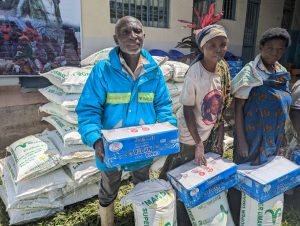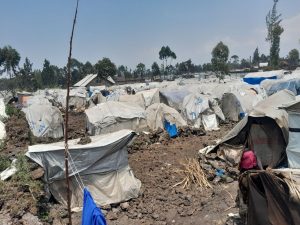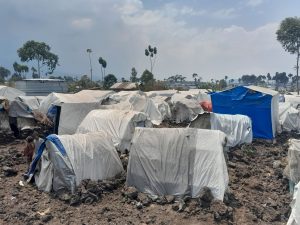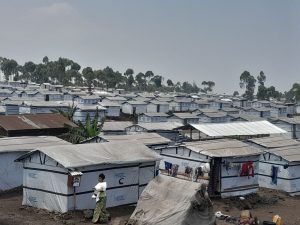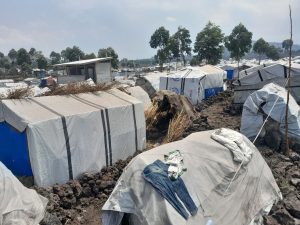The Democratic Republic of Congo (DRC) has experienced ongoing hostilities since the 1990s. The conflict has been particularly severe in eastern DRC, where it has led to approximately 6 million deaths since the First Congo War broke out in 1996. This makes it one of the deadliest conflicts in history. Eastern DRC is currently simmering with ethnic conflict, fuelled by competition for the region’s rich resources (including diamonds, cobalt, gold, and oil), Competing actors include rebel groups, Congolese security forces, and neighbouring states such as Rwanda and Uganda.
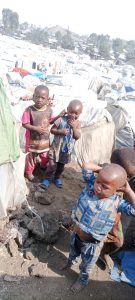 In more recent developments, the March 23 Movement (M23) rebel group launched an offensive on 20 October 2022, and seized a large part of the Rutshuru territory, displacing many people who had already fled the renewed fighting between the M23 and Congolese armed forces in recent months. Many of these people have been forced to flee again.
In more recent developments, the March 23 Movement (M23) rebel group launched an offensive on 20 October 2022, and seized a large part of the Rutshuru territory, displacing many people who had already fled the renewed fighting between the M23 and Congolese armed forces in recent months. Many of these people have been forced to flee again.
Nyiragongo Territory, bordering the city of Goma, has welcomed thousands of war-displaced people, many of whom are camped at the Catholic parish in the Kanyaruchinya Internally Displaced Person (IDP) camp, less than 3km from the Don Bosco Ngangi Youth Centre and the Salesian Industrial Technical Institute of Goma. Humanitarian organisations are overwhelmed, and no one knows how long this situation will last.
There has been serious fighting in Masisi territory, where the towns of Kitshanga and Mushaki have fallen under M23 control. Considering that Rutshuru and Masisi are the main sources of food for the city of Goma, food prices are very unstable. Also, due to the vast numbers of displaced people, several other IDP camps have sprung up.
The large numbers of IDPs in the Kanyaruchinya, Don Bosco Ngangi, Shasha, Rusayo and Bulengo camps are generally living in very challenging conditions. The efforts of various benefactors and local humanitarian organisations to provide shelter are having a major impact, however, as several households now have tarpaulins on their shelters. That being said, conditions have become more difficult now with the rainy season, which began in September. Also, increases in the cost of living have exacerbated the whole crisis, with food, fuel, and other goods rising in price exponentially.
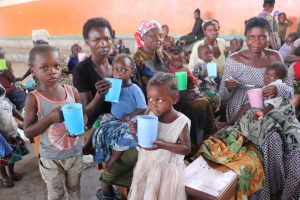 Pregnant women, the elderly, people living with disabilities, and widows/widowers are finding it very hard to get by in these conditions, having left everything behind in their homelands. The needs are enormous. The children need a space for games and for psychosocial care, helping them to deal with the trauma of the war. The Salesians are already doing what they can to organise activities like these for them, but they are not yet able to provide these for all the children across the different camps.
Pregnant women, the elderly, people living with disabilities, and widows/widowers are finding it very hard to get by in these conditions, having left everything behind in their homelands. The needs are enormous. The children need a space for games and for psychosocial care, helping them to deal with the trauma of the war. The Salesians are already doing what they can to organise activities like these for them, but they are not yet able to provide these for all the children across the different camps.
Several children missed the 2022-2023 school year, and it is very likely that they will miss the 2023-2024 school year again, because there is currently no hope of a return to their villages, where the security situation remains precarious. There is an urgent need for children and young people to be enrolled in either local schools or vocational training courses to reduce the risk of their undergoing sexual and/or economic violence and exploitation. There is also a need for households to be taught how to organize income generating activities in order to reduce their total dependence on humanitarian aid, especially considering that not everyone has access to aid.
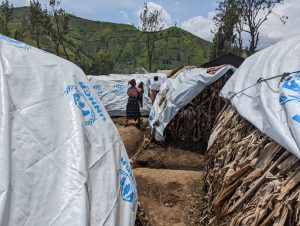 In terms of numbers, there are over 25,000 families of IDPs in total living in the camps at Kanyaruchinya, Don Bosco Ngangi, Don Bosco Shasha, and Bulengo. We are trying to collaborate with other partners to better coordinate our interventions at local level. It should be noted that many households in the various camps rely on the assistance of the Salesians of Don Bosco, who provide food to many displaced families, as well as pastoral care and spiritual nourishment.
In terms of numbers, there are over 25,000 families of IDPs in total living in the camps at Kanyaruchinya, Don Bosco Ngangi, Don Bosco Shasha, and Bulengo. We are trying to collaborate with other partners to better coordinate our interventions at local level. It should be noted that many households in the various camps rely on the assistance of the Salesians of Don Bosco, who provide food to many displaced families, as well as pastoral care and spiritual nourishment.
It should also be pointed out that many people and humanitarian organizations were sensitive to the conditions of the IDPs when the reception of displaced people was still a new reality, but now that the situation is continuing, the displaced people no longer receive enough aid. We are still trying to do what we can, thanks to the generosity of benefactors and the trust placed in Don Bosco.
by Pascal Bauma, Goma
